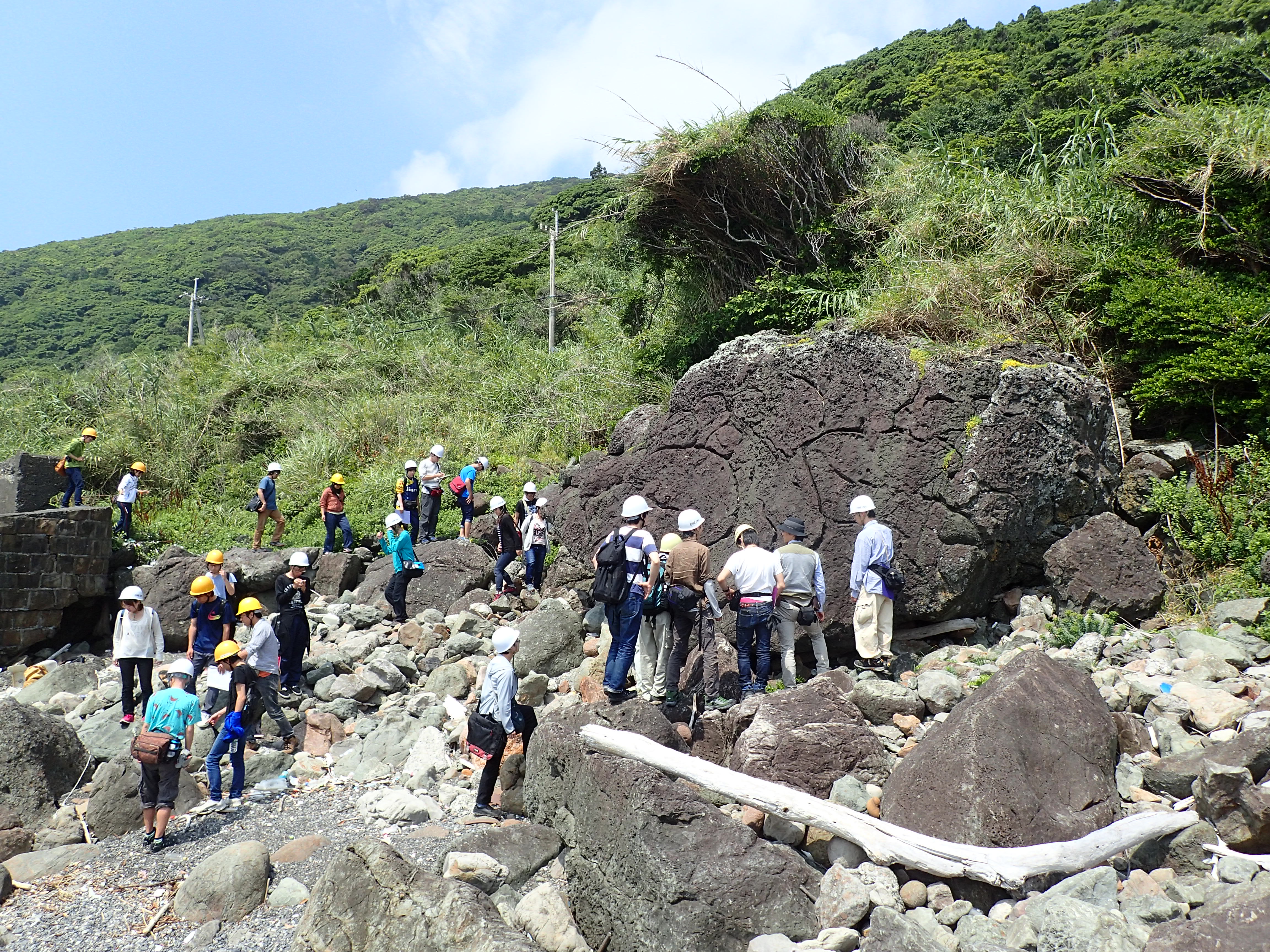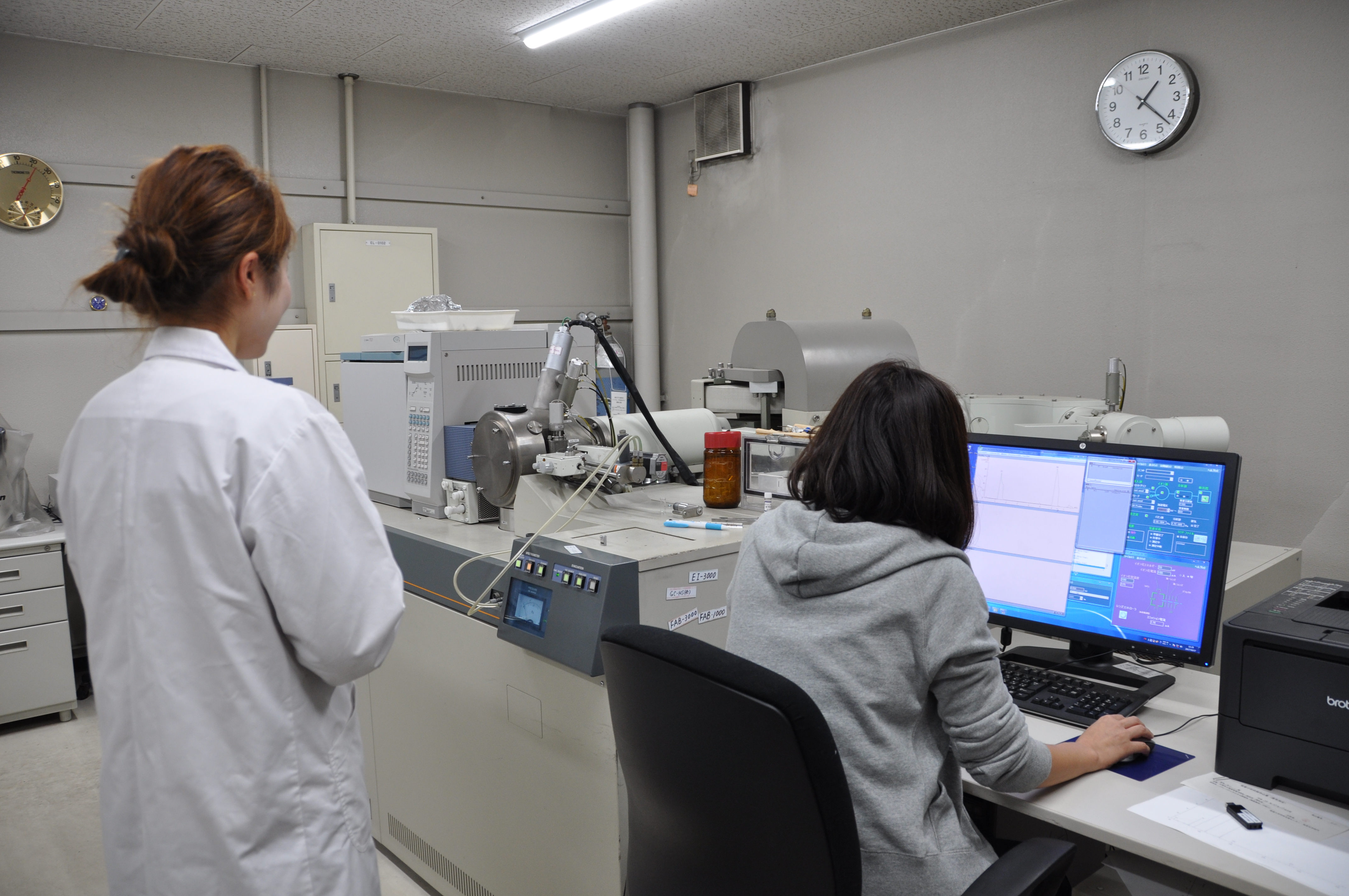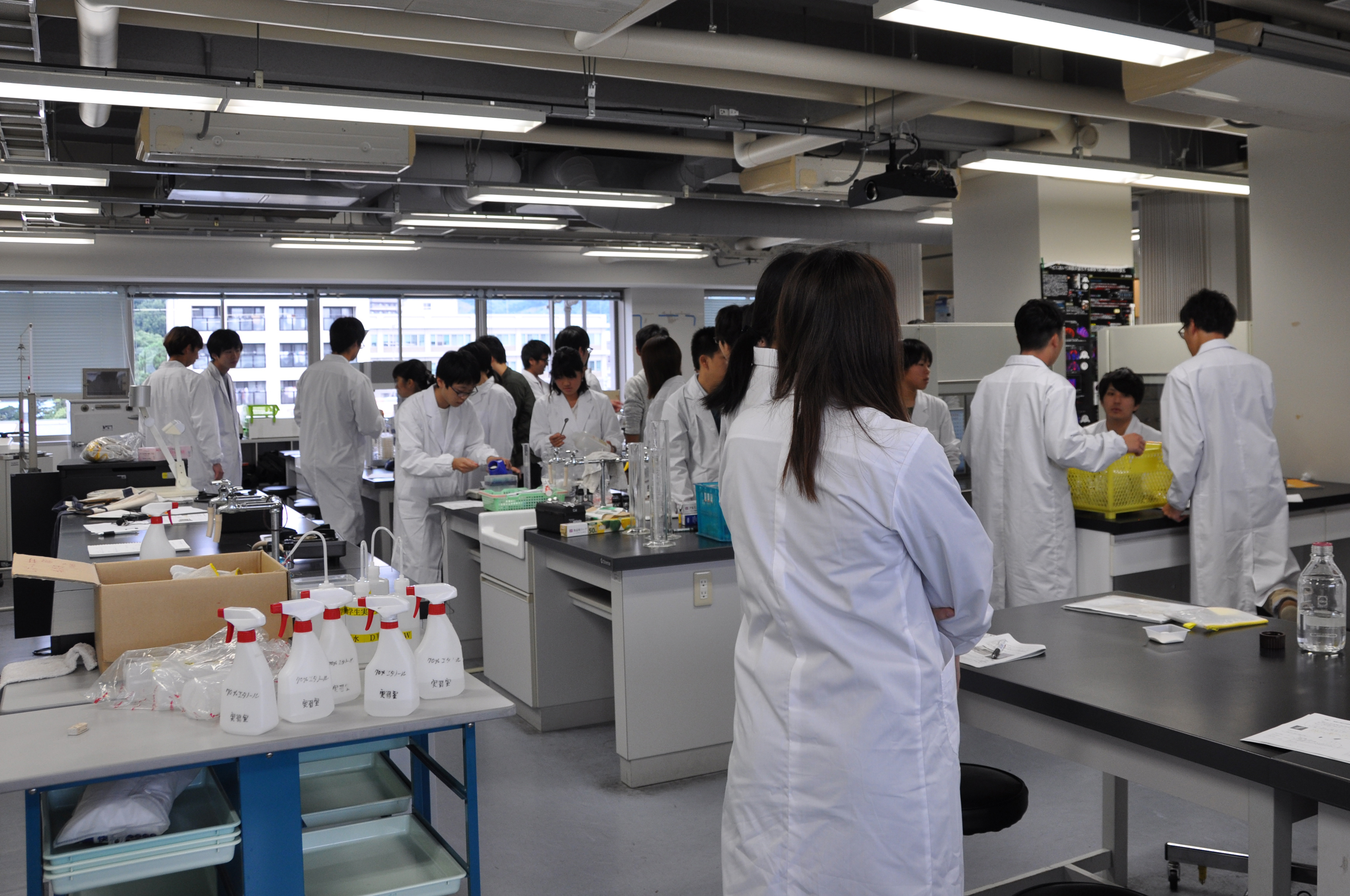Outline
The Natural Science Program, consisting of the fields of Physics, Earth Sciences, Chemistry, Biology and their combined fields, aims to contribute to the development of academia, industry and society by educating professionals who support modern technology and explore future knowledge through their studies and research activities on a wide range of topics related to nature and its surroundings, such as scientific laws and various phenomena in this world, the formation of the universe and the earth, the ecology and mechanism of animals and plants, and the structures and new uses of materials. This program educates motivated students with a spirit of scientific inquiry by offering a highly specialized and flexible curriculum, under the broad and distinctive academic research infrastructure of the Graduate School of Science and Engineering and the centers of the Institute for the Promotion of Science and Technology of Ehime University. It fosters problem-seeking and problem-solving skills to enable independent research and development activities. The purpose of this program is to contribute to society by developing and preparing science and engineering professionals with advanced knowledge, skills, personal values, a broad perspective and a new sense of values who can work creatively and cooperatively on the regional and global stages.
Physics
 Faculty Members
Faculty Members
Physics is a branch of science that studies the mechanisms of natural phenomena and elucidates the basic laws of nature, which is based on facts established by experiments and observations. The findings are used to understand the diversity of the world and applied in many areas of technology and industry. The field of Physics carries out research and education that covers a wide scale of phenomena ranging from subatomic particles to the universe. Specifically, in theoretical physics, we aim to understand various properties of matter and phenomena with the fundamental laws of physics on a micro and/or macro scale. In experimental physics, we study materials with special magnetic properties, plasma phenomena, optical physics, and their applications. In the astrophysics, we investigate phenomena and objects in the universe such as solar flares, black holes, galaxies with observations using various wavelengths and computer simulations.
Earth Sciences
 Faculty Members
Faculty Members

The field of Earth Sciences conducts fundamental and advanced research and education on geology, paleontology, petrology, mineralogy, solid-earth geophysics, oceanography, and geo-environmental science. In particular, we now focus on comparative and descriptive studies of fossil and living vertebrates, the biostratigraphy and evolution of radiolarians, the functional and theoretical morphologies of ammonoids and other mollusks, field geological survey, the descriptive and experimental studies of rocks (granite, etc.) and minerals, archaeological materials, the technology of high-pressure experiments, earth and planetary tectonics, the properties of rock-forming minerals, simulation of the inside of the earth and planets, theoretical mineral physics, paleoceanography, physical and chemical oceanography, and environmental pollution.
Chemistry
 Faculty Members
Faculty Members

The field of Chemistry conducts fundamental and advanced research and education that covers the basics to the cutting edge of material science, such as material creation, chemical analysis, reaction control, the physical property control of materials, and the utilization of genes or biological substances. In solid-state physical chemistry/reaction physical chemistry, we conduct research on the molecular mechanism elucidation of macroscopic properties (catalytic action, electrical/magnetic properties, etc.) of solid materials, structural analysis, creation of new materials, and we conduct research on the elementary processes of chemical reactions, the elucidation of semiconductor surface structures and physical properties using advanced spectroscopic technology. In organic synthesis/material creation chemistry, we conduct research on the synthetic creation and structural analysis of functional molecular materials, and the exploration and synthesis of natural physiologically active substances contained in marine creatures. In analytical chemistry/biological chemistry, we conduct research on the development of new bioanalytical methods, creation of new functional biomolecules and artificial life systems, and elucidation of the molecular mechanism of highly efficient energy conversion in photosynthesis by using genetic-engineered mutants. We also investigate environmental pollution of chemical substances that adversely affect the health of humans and wildlife, such as endocrine disruptors from a regional and global perspective.
Biology
 Faculty Members
Faculty Members

The field of Biology consists of three areas: morphogenesis, physiology/adaptation, and ecology/environment. We investigate a variety of biological processes in microorganisms, plants, and animals at different levels: from molecules and cells to populations, communities and ecosystems. In the area of morphogenesis, we study phenomena related to morphogenesis of animals and plants using biochemistry, molecular biology, histology, morphological methods, etc. on themes such as animal development, evolutionary morphology, and plant morphology. In the area of physiology/adaptation, we study the environmental response of animals and plants using the methods of physiology, biochemistry, molecular biology, on topics such as plant physiology, fish environmental physiology, and aquatic toxicology. In the area of ecology/environment, research on topics such as ecology and evolution, and ecotoxicology is undertaken by field studies, molecular biology, biochemical methods, and bioinformatics to clarify the relationship between organisms and the environment, the relationship between species in evolution, and the toxic effects of environmental pollutants and their molecular mechanisms. These studies aim to provide a comprehensive understanding of the function and evolution of organisms and the interrelationship between organisms and the global environment.
